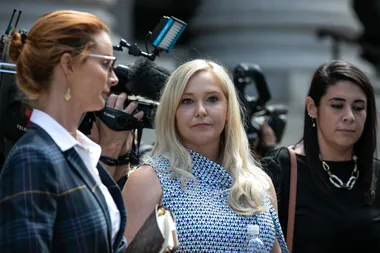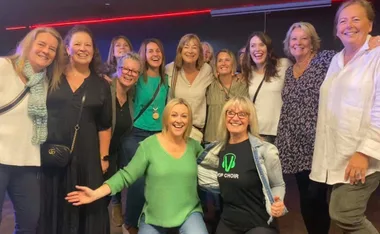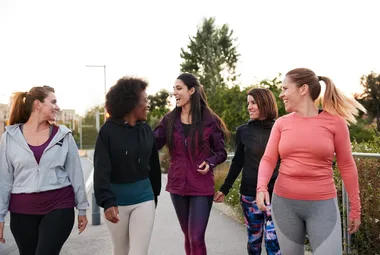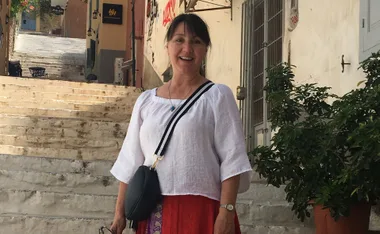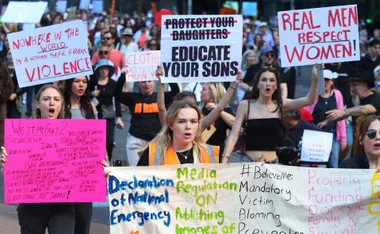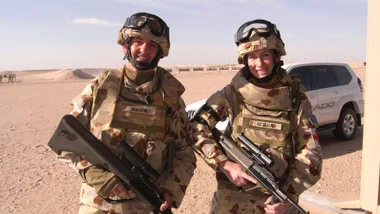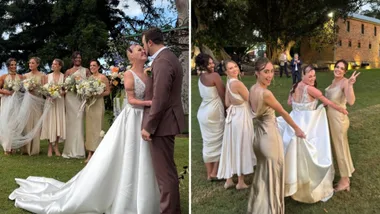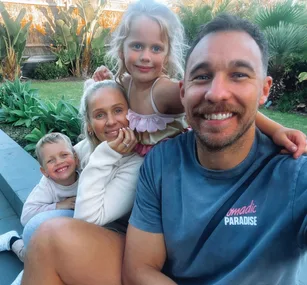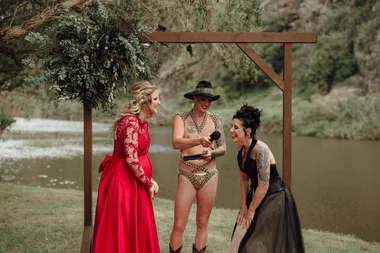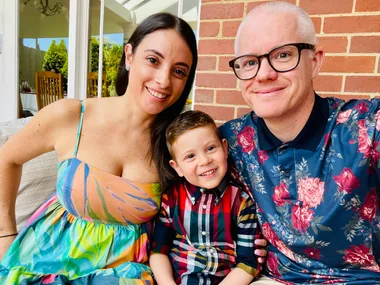At 3.00pm on an otherwise ordinary December day in 2008, Caroline Bernardi received the kind of shocking news no one is ever prepared to hear. She had just been diagnosed with cancer, and it was inoperable.
The 44 year old marketing executive and mother of two had just spent the morning delivering Christmas presents to her clients and was now sitting in a doctor’s office being told she had lung cancer and less than a 5 per cent chance of surviving more than 12 months.
“It was surreal,” says Caroline. “I had five tumours spread between both lungs. At first they thought it would have to be ovarian cancer, because you know, you’re young, you’re healthy, you’re a non-smoker, …how could it possibly be lung cancer?”
But it was, and the cancer had spread up through her neck, throat and across her chest and shoulders. “It opened my eyes a lot because I only ever thought that people who smoked got it. I was incredibly surprised that I was diagnosed with that,” she said.
After receiving little comfort or hope from her diagnosing oncologist Caroline sought out a second opinion.
“We immediately looked for another oncologist and we came to Royal Prince Alfred. My appointment was with Professor Michael Boyer. We knew that my prognosis was very grim but we found that he gave us a path to a possibility of at least something. He didn’t give up, he didn’t shrug his shoulders.”
Professor Boyer decided that Caroline needed a path of treatment which included chemotherapy.
“But by the end of the chemotherapy treatment, you could actually see the tumours protruding from my neck. By the time I went back to see him, I knew that the news was not going to be good because quite clearly it was like having two marbles out of my neck,” she recalls.
After finding that her cancer wasn’t responding to chemotherapy, Caroline started on a trial drug, and within five days of taking the three daily tablets, the little marble-like tumours in her neck had softened.
“They’d turned into mush. And I was feeling pretty good,” she said.
As her treatment continued, the tumours in Caroline’s neck continued to shrink and soften to the point where both she and Professor Boyer could no longer feel them. After eight weeks she returned to see Professor Boyer for another CT scan.
The cancer had gone.
Caroline asked Professor Boyer how she should respond if someone asked whether she still had cancer. “He said ‘you can say, I did but I don’t anymore.’
“I don’t think that there’s a word in the emotional human language that could describe how I felt; very humble, incredible gratitude. That afternoon I kept thinking ‘oh my gosh I can wake up tomorrow morning and think about what to put in my kids lunchboxes.’ I thought I’d be jumping for joy, so full of celebration, but I was so humbled and so grateful for the tireless efforts that people put in for something that in their lifetime they never see a cure for.”
Caroline says that having been through cancer, and coming out the other side has changed the way she sees the world.
“Before I had cancer I was working part time, I was doing some volunteer work, I was a little bit involved in the kids’ school, but everything had to be perfect.
If my husband and my kids were out the back relaxing in the pool, I’d go and do the dishes or clean out a cupboard, or I would check my emails. I couldn’t actually sit and relax for too long. And everything in the house had to be perfect. I’m a much more open mother now. I have become a lot more compassionate towards people in general, and less judgemental than I used to be. I now facilitate meditation. I volunteer at the Mater Hospital in Crow’s Nest and do meditation with cancer patients there every Tuesday afternoon. So it’s changed me enormously.”
When asked what advice she had for anyone currently going through a similar experience, Caroline had this to say, “The advice I would give myself is exactly what I actually did, and that was really honour myself. It’s not a time to worry about hurting other people’s feelings. It’s a time for really doing what you feel is best for you. And if that’s ringing up a friend at the very last minute and saying ‘you can’t come over, it’s just not a good day’, then that’s what you need to do. Sometimes it’s hard. You live your life truthfully and I really honour what I feel is best for me. And what’s best for me might not be best for the next person, but what they do, I hope, is best for them.”
“This will sound bizarre but if I had my time again I would still want to have gone through all that I have because it’s changed me as a woman, a mother, and a wife. Through a combination of integrative medicine, western medicine and access to clinical trials I have beaten the odds. The care and facilities being offered at Lifehouse will support others to do the same”.
With the help of donations, the newly opened Chris O’Brien Lifehouse in Sydney’s Camperdown aims to improve the quality of life for cancer patients and their families by bringing together all the elements of cancer research, medical treatment and complementary therapies, as well as support and sanctuary all under the one roof.
To donate a gift for a patient at Lifehouse visit www.lifehousewarming.com.au

